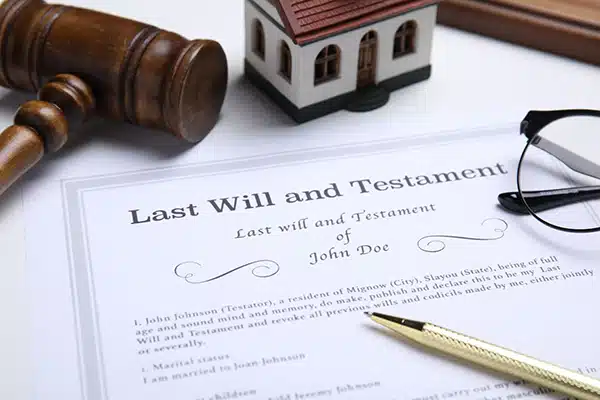How to Find a Will of a Deceased Person Online
Are you on a quest to uncover the mysterious will of a deceased loved one? Delving into the realm of online searches and legal processes may seem daunting, but fear not! In this article, we will navigate the intricate world of locating a will left behind by someone who has passed away. Join us as we unravel the secrets of finding a will of a deceased person online with ease and clarity.
Is a Will Public Record?
When it comes to wills, the question often arises: are they public record? The answer is not a simple yes or no. In general, wills become public after they go through probate, which is the legal process of validating a will and distributing assets according to its instructions.
During probate, the will becomes part of the public record, accessible for anyone to view. However, before probate takes place, a will is typically kept private and confidential. Understanding this distinction is crucial when embarking on the journey of finding a deceased person’s will online.
How to Find Out If Someone Made a Will
Losing a loved one is challenging, and dealing with their affairs can add extra stress. If you’re wondering if the deceased left a will, start by checking their personal documents or safe deposit box. Look for any indications of a will or contact their lawyer or estate planner.
It’s also helpful to inquire at the local probate court where wills are typically filed. Sometimes, people share information about their will with family members or close friends, so reaching out to them might provide valuable insights into whether a will exists. Remember that patience and thoroughness are key when searching for this important legal document.
Getting a Copy of a Will in Probate
When a will is in probate, it means that the court is overseeing the process of distributing the deceased person’s assets according to their wishes. To obtain a copy of a will in probate, you can typically request it from the probate court handling the case. This may involve filling out a form and paying a fee.
It’s important to follow the specific procedures outlined by the probate court to ensure your request is processed efficiently. Keep in mind that during probate, certain information might be available for public viewing while other details could be kept confidential until the process is completed.
Getting a Copy of a Will That’s Not in Probate
When a will isn’t in probate, obtaining a copy can be more challenging. Start by checking with the deceased person’s lawyer or financial advisor, as they may have information on where the will is stored. If you’re unsure whether a will exists, search through any personal files or safe deposit boxes for important documents.
If you still can’t locate the will, consider contacting the local probate court to see if they have any record of it being filed. Keep in mind that without going through probate, accessing a will might require legal assistance to navigate the process effectively.
Who is entitled to see a copy of a will?
When it comes to who can see a copy of a will, the rules vary depending on whether the will is in probate or not. In general, beneficiaries named in the will are entitled to see its contents. They have a legal right to know what has been outlined regarding their inheritance.
Furthermore, if you believe you have a legitimate interest in the estate, such as being an heir or potential beneficiary, you may also be entitled to view the will. It’s important to consult with legal experts for guidance on your specific situation and rights regarding accessing a copy of a deceased person’s will.
What is a certified copy of a will?
A certified copy of a will is a duplicate of the original will that has been verified as a true and accurate representation. This certification is usually done by a court clerk or another authorized individual, confirming that it’s an authentic reproduction.
Having a certified copy can be crucial for legal purposes, ensuring that the document holds weight in official proceedings. It serves as proof of the validity and existence of the original will, providing assurance to interested parties regarding its contents and legitimacy.
How much does a copy of a will cost?
When it comes to obtaining a copy of a will, the cost can vary depending on where and how you request it. Typically, if the will is in probate, you may be able to obtain a copy for free or at a minimal fee from the court handling the case.
On the other hand, if the will is not in probate and you need to request a copy directly from an individual or their attorney, there may be additional fees involved. It’s advisable to inquire about any associated costs upfront so that you are prepared for any expenses that may arise during this process.
Why Finding the Will Is Important?
When someone passes away, finding their will becomes crucial for several reasons. A will outlines the deceased person’s final wishes regarding the distribution of their assets and possessions, ensuring that their estate is handled according to their desires. This can help prevent confusion or disputes among family members about inheritance and property rights.
Moreover, locating the will allows for the appointment of an executor who will be responsible for carrying out these instructions. Without a valid will in place, decisions about asset distribution may fall into the hands of state laws rather than reflecting the individual’s intentions. Finding the will is essential for honoring the deceased’s legacy and ensuring a smooth transition of assets to beneficiaries.
How to Find a Will? How to Find Out If Someone Has a Will After They Die?
Losing a loved one can be overwhelming, and navigating their affairs may seem daunting. If you’re wondering how to find out if someone had a will after they pass away, start by checking their important documents at home. Look for safe deposit boxes, files labeled “will,” or any legal paperwork that might indicate the presence of a will.
Additionally, reach out to the deceased person’s lawyer or estate planning attorney for guidance. They would likely have information about the existence and location of the will. Remember, patience and thoroughness are key when trying to locate such crucial documents during this emotionally challenging time.
How to Find Out If a Will Exists for Free? How to Find a Will of a Deceased Person Online?
So, you’re wondering how to find out if a will exists for free or how to locate the will of a deceased person online? The digital age has made it easier than ever to search for important documents like wills online. One way to start is by checking online databases that may have records of wills filed with the probate court.
Additionally, some states offer online resources where you can search for a will by providing basic information like the deceased person’s name and date of death. It’s worth exploring these options first before considering other avenues to track down a copy of a will without incurring costs.
How to Transfer Property after the Death of a Parent?
Losing a parent is undoubtedly a challenging time, and navigating the legalities of transferring property can add to the emotional burden. When a parent passes away, their assets typically go through probate or follow specific instructions outlined in their will. It’s crucial to locate the will and understand how they intended for their property to be distributed.
Consulting with an estate attorney can provide clarity on the legal steps required to transfer property smoothly. Understanding your rights as a beneficiary or heir is essential in ensuring that your parent’s wishes are honored when it comes to transferring their assets.
Can an Executor Open a Safety Deposit Box?
When a loved one passes away, the executor of their estate may need to access important documents stored in a safety deposit box. However, gaining access to the contents of a safety deposit box is not as simple as it may seem.
The executor must present certain legal documents and follow specific procedures to open the safety deposit box. It’s crucial to consult with legal counsel to ensure that all steps are followed correctly and in compliance with state laws governing probate and estate administration.
What Happens If You Cannot Find the Will?
Losing a will can create uncertainty and complications in the probate process. If a deceased person’s will cannot be found, it is considered “lost,” which may lead to challenges in distributing assets according to their wishes. In such cases, the estate may be handled as if there was no will at all.
This situation could result in intestacy laws governing how the estate is divided among heirs. Probate courts might appoint an administrator to oversee the distribution of assets based on legal guidelines rather than the deceased individual’s specific instructions outlined in a will. It underscores the importance of keeping wills secure and ensuring loved ones are aware of their location.
Understanding How Wills and Probate Work
When a person passes away, their will typically goes through the probate process. Probate is the legal procedure of validating a will and distributing the deceased’s assets according to their wishes. During probate, the court oversees the administration of the estate to ensure debts are paid and assets are distributed correctly.
Understanding how wills and probate work is essential for anyone involved in managing an estate or beneficiaries expecting inheritance. It involves following specific legal procedures, such as filing necessary documents with the court, inventorying assets, paying debts, and ultimately distributing remaining assets to heirs.
Tips on Estate Planning
Estate planning is a crucial aspect of ensuring that your assets are distributed according to your wishes after you pass away. It involves creating a will, establishing trusts, designating beneficiaries, and more. To ensure a smooth transfer of assets to your loved ones, consider these tips:
1. Start Early: Don’t wait until it’s too late to create an estate plan. Start the process early to avoid any last-minute decisions or confusion.
2. Seek Professional Help: Consult with an experienced estate planning attorney who can guide you through the process and help you create a comprehensive plan tailored to your specific needs.
3. Update Your Plan Regularly: Life changes such as marriages, divorces, births, and deaths can all impact your estate plan. Make sure to review and update your plan regularly to reflect any changes in your circumstances.
4. Consider Tax Implications: Keep in mind the tax implications of transferring assets upon death and explore strategies to minimize taxes for your beneficiaries.
5. Communicate Your Wishes: Clearly communicate your wishes with your family members and loved ones so there are no surprises when it comes time to distribute assets.
By following these tips on estate planning, you can ensure that your final wishes are carried out efficiently and effectively, providing peace of mind for both you and your loved ones.

